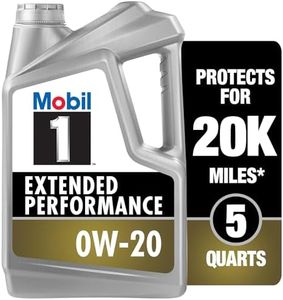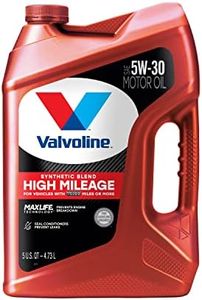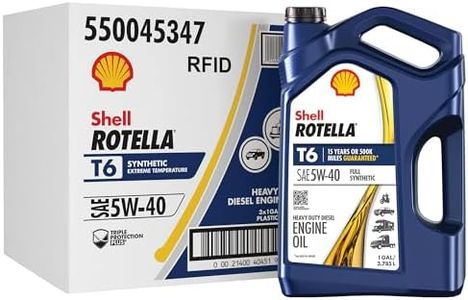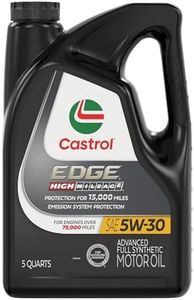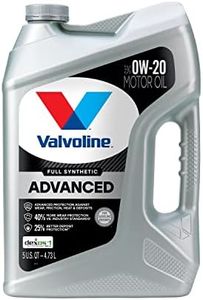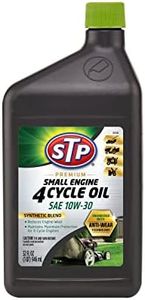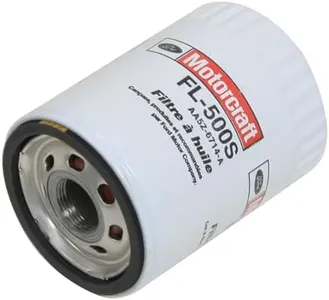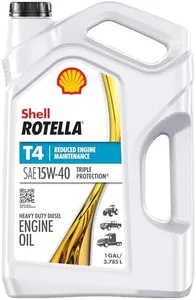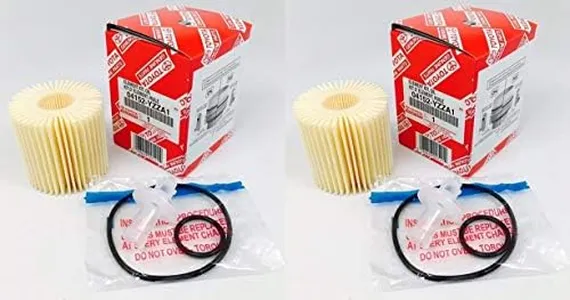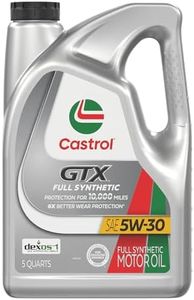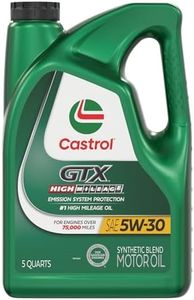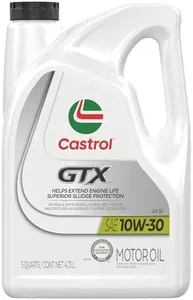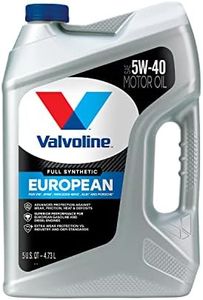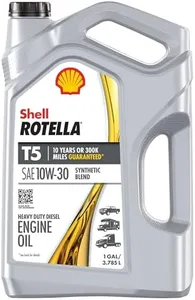We Use CookiesWe use cookies to enhance the security, performance,
functionality and for analytical and promotional activities. By continuing to browse this site you
are agreeing to our privacy policy
10 Best Engine Oils 2025 in the United States
How do we rank products for you?
Our technology thoroughly searches through the online shopping world, reviewing hundreds of sites. We then process and analyze this information, updating in real-time to bring you the latest top-rated products. This way, you always get the best and most current options available.

Buying Guide for the Best Engine Oils
Choosing the right engine oil for your vehicle is crucial for maintaining its performance and longevity. Engine oil lubricates the moving parts of the engine, reduces friction, and helps to keep the engine cool. It also plays a role in cleaning and protecting the engine from wear and corrosion. To select the best engine oil, you need to understand the key specifications and how they relate to your vehicle's needs and driving conditions.ViscosityViscosity refers to the thickness of the oil and its ability to flow at different temperatures. It is usually represented by a combination of numbers and letters, such as 5W-30. The first number (with the 'W' for winter) indicates the oil's flow at cold temperatures, while the second number indicates its flow at high temperatures. Lower numbers mean the oil is thinner and flows more easily. For example, 5W-30 is suitable for colder climates, while 10W-40 might be better for warmer climates. Choose the viscosity recommended by your vehicle's manufacturer, which is usually found in the owner's manual.
Synthetic vs. ConventionalEngine oils can be either synthetic or conventional. Synthetic oils are chemically engineered to provide better performance and protection, especially in extreme temperatures and high-stress conditions. They tend to last longer and offer better lubrication. Conventional oils are derived from crude oil and are generally less expensive but may not perform as well under extreme conditions. If you drive in harsh conditions, such as very hot or cold climates, or if you have a high-performance engine, synthetic oil might be the better choice. For regular driving and older vehicles, conventional oil can be sufficient.
AdditivesAdditives are chemicals added to engine oil to enhance its performance. Common additives include detergents, which help keep the engine clean; anti-wear agents, which protect engine parts from wear; and antioxidants, which prevent oil breakdown. The presence and quality of these additives can significantly impact the oil's effectiveness. Look for oils that contain a good balance of additives suited to your driving conditions. For example, if you drive in a dusty environment, an oil with strong detergent properties might be beneficial.
API RatingThe American Petroleum Institute (API) rating indicates the quality and performance standards of the engine oil. It is usually represented by two letters, such as SN or CJ-4. The first letter indicates the type of engine (S for gasoline, C for diesel), and the second letter indicates the quality level, with higher letters representing more recent and higher standards. Always choose an oil with an API rating that meets or exceeds the requirements specified in your vehicle's owner's manual.
Manufacturer SpecificationsVehicle manufacturers often have specific requirements for engine oil to ensure optimal performance and longevity of the engine. These specifications can include viscosity, API rating, and other performance standards. It is essential to follow the manufacturer's recommendations, which can be found in the owner's manual or on the oil cap. Using oil that meets these specifications helps maintain your vehicle's warranty and ensures the engine operates efficiently.
Most Popular Categories Right Now


